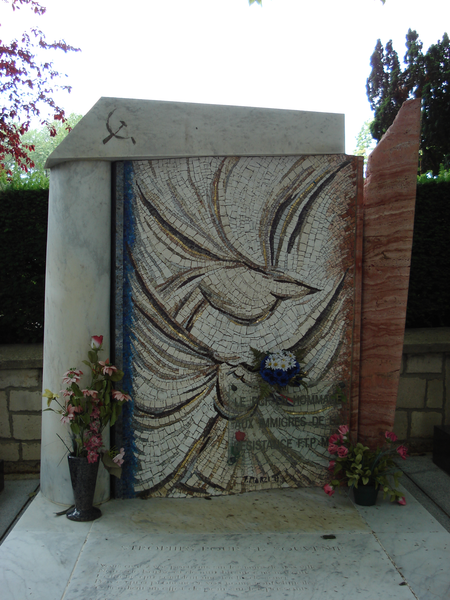Browse by Tags: toulouse
 | Up a level |
Number of items: 3.
Immigrants contribution to the Resistance in France during WWII.
Shared with the World by Mr Emmanuel Godin
Robert Guédiguian’s film Army of crime (2009) should be understood in the context of contemporary debates about French national identity and the contribution of immigrants to French society (see interview with the lead actor,Simon Abkarian). The film throws light on the role played iby anti-fascist refugees from Spain, Hungary, Poland, Armenia, Italy during the Second World War in France (See Official UK Trailer[Youtube]). These refugees, often Jews, close or members of the Communist Party, saw France as the country of human rights and were often the first one to organise resisters’ networks. Fighting in the Communist-led FTP-MOI (Francs-tireurs et partisans – main-d'œuvre immigrée), they were specifically targetted by the Nazis and the Vichy regime, as testified by the infamnous ‘Affiche rouge’. Poetry (Louis Aragon’s 1956 Strophes pour se souvenir) and mortuary monuments (such as the ones to be found in the Pére Lachaise cimetry in Paris, commemorating the role of Spaniards and immigrants in the Resistance movements),have been the traditional media through which their memory has been commemorated. Recently, Toulouse, ‘capital of Spanish republican exile’, has set up a ‘remembrance tour’ of the city. The Ciy Council has produced a (touristic?) leaflet to guide visitors through the major sites of Spanish Resistance (included here). A short bibliography points to the way academic research has also approached the subject.
Shared with the World by Mr Emmanuel Godin
Reform of French universities and la Loi Precresse (LRU) (2007-09)
Shared with the World by Mr Emmanuel Godin
The Pecresse law (11.08.2007) aims to give French universities a degree of autonomy and freedom (also known as ' loi LRU', i.e loi relative aux libertés et responsabilités des universités).Its introduction has generated a massive discontent and a high level of opposition among students and academics alike. As part of her undergraduate dissertation on 'Toulouse 2008: Ideology, Tactics and Organisation of Student Movements 40 years after May 68' (supervised by Dr Natalya Vince), Rosalind Parkin studied the reception of the Pecresse law in Toulouse, focussing on students' opposition to the law. A good level of French is necessary to understand the text of the law itself as well as the arguments developed by Association Générale des Etudiants de Toulouse or Democratie et Socialism, a think-tank on the left of the Socialist Party (PS). Undergraduate and PG students are most likely to benefit from such sources.
Shared with the World by Mr Emmanuel Godin
Students Politics in Toulouse
Shared with the World by Mr Emmanuel Godin
Student politics in France is often dominated by a high degree - and high visibility- of political radicalism. If such radicalism is often the product of a well-organised minority on the extreme left of the political spectrum, it remains a central part of university life. As part of her undergraduate dissertation on 'Toulouse 2008: Ideology, Tactics and Organisation of Student Movements 40 years after May 68' (supervised by Dr Natalya Vince), Rosalind Parkin photographed a series of posters during her year abroad in Toulouse (2007-2008). Students' radicalism is not only aimed at president Sarkozy's reforms of higher education, but also expresses a commitment to feminism, anti-elitism, class-based politics, anti-fascism, and social solidarity. A good level of French is necessary to understand the posters and final year undergraduate and PG students are most likely to benefit from them.
Shared with the World by Mr Emmanuel Godin
![[img]](http://www.humbox.ac.uk//542/1.hassmallThumbnailVersion/History_and_memory_France_resistance_Immigration_Communist_Party.jpg)



